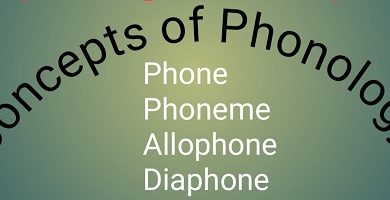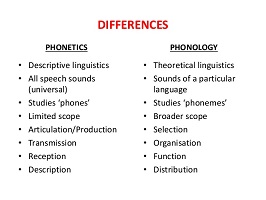Types of syllables in English/definition/split word/identification
Syllables
A syllable can be a letter, and sometimes a whole group of consonants and vowels, which the English pronounce in different ways. The syllable is a phonetic element of the language. We can talk about the importance of syllables for oral speech, while they do not participate in semantic word-formation. Therefore, the syllable is also called a pronunciation unit. Types of syllables in English
The English alphabet has only 26 letters and six of them are vowels. Singly and in combination with other letters, vowels form two dozen sounds in British English. In American English, there are slightly fewer vowels. In any case, this means that in English, each vowel can be read in a different way. It depends on the:
- type of syllable (open and closed syllable in English);
- stress;
- adjacent letters.
Types of syllables in English Types of syllables in English
1-Open syllable
A syllable is called open if it ends in a vowel. If the stress falls on an open syllable, then the reading of the vowel in it coincides with the reading of the vowels in the alphabet. Thus, “a” is pronounced as [ei], “e” – [i], “o” – [əʊ] or [oʊ] (in British and American English, respectively), “u” – [juː], and the letters “i” and “y” are both read [aɪ]. For example:
- ba-sic [ˈbeɪ.sɪk]
- fe-ver [ˈfiː.vɚ]
- ri-val [ˈraɪ.vəl]
- mo-tor [ˈmoʊ.t̬ɚ]
- mu-sic [ˈmjuː.zɪk]
- de-ny [dɪ’naɪ]
This type of reading also includes words with a dumb “e” at the end of the word. For example, in the following words, the letter “e” is not pronounced, but the vowels are read according to the rules of an open syllable:
- take [teɪk]
- Pete [pi: t]
- kite [kaɪt]
- nose [nəʊz]
- cute [kju: t]
English words can be composed of one open syllable. For example, me , she , he ; no , so , go and my , by , fly . In monosyllabic words that end in “o” , such as do , to , who, the vowel is pronounced [ʊ].
If the open syllable is unstressed, then all vowels, except for “o” , are read differently: “a” – [ə], “e” and “y” – [ɪ], “i” – [ɪ] or [ə], ” u ” remains [ju:] or becomes [jə]. For example:
- machine [məˈʃiːn]
- election [iˈlek.ʃən]
- city [ˈsɪt.i]
- accident [ˈæk.sɪ.dənt]
- zero [ˈzɪə.rəʊ]
- ambulance [ˈæm.bjə.ləns]
2-Closed syllable Types of syllables in English
A closed syllable ends in one or more consonants, the vowel in this case is read briefly. For example:
- snack [snæk]
- pet [pet]
- kit [kɪt]
- nod [nɒd]
- cut [kʌt]
- put [pʊt]
The letter “u” can be pronounced as [ʌ] (very short sound [a]) and [ʊ]. After the sounds [p], [f], [b] and before [l], [ʃ], or [tʃ], it is usually pronounced as [ʊ]. For example:
- full [fʊl]
- butcher [ˈbʊtʃ.ɚ]
However, this is a question of dialects of the English language: native speakers of North English dialects pronounce this letter only as [ʊ].
In English, there are many words that consist of one closed syllable ( cat, pin, red ). If you add a suffix starting with a vowel to them, the consonant in front of it will double and the sound will not change. For example:
- hat [hæt] – hatter
- pin [pɪn] – pinned
- hot [hɒt] – hottest
- red [red] – reddish
- cut [kʌt] – cutting
3-Stressed syllables Types of syllables in English
Take the word cha-ra-cter , for example . According to the open stressed syllable rules, the first stressed vowel “a” should be read as [ei], but the word is pronounced as [ˈkær.ək.tə]. The fact is that in English words with three or more syllables, the stress often falls on the third syllable from the end (as is the case with character ), and then the vowel in it is read briefly – as in a closed syllable. For example: Types of syllables in English
- e-le-ment [ˈel.ɪ.mənt]
- li-ber-ty [ˈlɪb.ə.ti]
- cho-co-late [ˈtʃɒk.lət]
The syllable “vowel + r”
If the vowel is followed by the letter “r” , then the vowel gives a long sound, but not the same as in an open syllable. So, “a” reads like [a:], “o” reads like [ɔ:]. The letters “e, i, u” combined with “r” make the sound [ɜ:]. For example:
- car [kɑː]
- herb [hɜːb]
- girl [ɡɜːl]
- form [fɔːm]
- turn [tɜːn]
In British English, unlike in American English, the [r] sound is not pronounced in these words.
The doubled “r” does not affect the sound of the vowel. In this case, the syllable is read as closed. Compare:
- smirk [sməːk] – mirror [ˈmɪrə]
- curl [kəːl] – current [ˈkʌr (ə) nt]
- port [pɔːt] – torrent [ˈtɒr (ə) nt]
The syllable “vowel + re”
The combination of letters ” re ” forms a diphthong in the syllable “vowel + re ” When we pronounce a diphthong, one sound passes into another, that is, it actually splits into two. The same [ei], [ai], [əʊ] or [oʊ] that appear in open syllables are diphthongs. Other English diphthongs: [au], [oi], [iə], [ʊə], [eə].
Examples of such words:
- dare [deə]
- mere [mɪə]
- hire [ˈhaɪə]
- pure [pjʊə]
The syllable “consonant + le” Types of syllables in English
The syllable “consonant + le ” occurs only at the end of a word. If -le is preceded by one consonant, the syllable is read as open. If there are two consonants before -le , it is read as closed. Compare:
- table [ˈteɪbl] – dabble [dæbl]
- title [ˈtaɪtl] – little [ˈlɪtl]
- bugle [bju: gl] – struggle [ˈstrʌɡl]
- rifle [ˈraɪfl] – sniffle [ˈsnɪfl]
Not every consonant is combined with -le . Here are the ones typical of the English language:
- -ble ( stable, bubble )
- -ple ( staple, apple )
- -dle ( bridle, riddle )
- -tle ( title, brittle )
- -gle ( bugle, giggle )
- -kle ( tinkle )
- -fle ( rifle, duffle )
- -cle ( cycle )
- -ckle ( pickle )
- -stle ( whistle )
- -zle ( bamboozle, dazzle )
Syllable + ld, nd
If the word contains combinations of letters ld , nd , then the syllable is separated right before them: fi-nd , co-ld . This is why it is read as open: Types of syllables in English
- mild [maɪld]
- kind [kaɪnd]
Vowel combinations (digraphs)
A digraph is a combination of two letters that are pronounced as one sound. In the case of vowels, it can be a long, short sound or a diphthong. Many old Anglo-Saxon words, the pronunciation of which have changed over hundreds of years, retain the following digraphs: thief , boil , hay , boat , straw . For example, the word thief has this story:
- Old English: thēof
- Old Frisian: thiāf
- Old Saxon language: thiof
- Old High German: diob
- Old Norse language: thjōfr
- Gothic language: thiufs
There are many exceptions to these words, so the only way is to memorize them gradually and systematically.
Basic vowel digraphs. Table
| Writing | Pronunciation | Examples of |
| ai / ay | [eɪ] | bait, hay |
| au / aw | [ɔː] | taunt, draw |
| ea | [i:] | meat, deal |
| [e] | bread, steady | |
| ee | [i:] | feed, reel |
| ei | [eɪ] | feint, vein |
| [i:] (after c) | ceiling, receive | |
| eu / ew | [ju:] [uː] | feud, strewn, jewel |
| ie | [i:] | thief, priest |
| oa | [əʊ] | coat, goal |
| oi / oy | [ɔɪ] | coin, toy |
| oo | [u:] | root, food |
| [ʊ] (before k) | book, look + exceptions good, room | |
| ou | [aʊ] | loud, noun |
| [u:] | soup, ghoul | |
| ow | [aʊ] | cow, howl |
| [oʊ] | know, low |
These combinations of vowels may not be digraphs, then the vowels will belong to different syllables. In this case, the first vowel is read as in an open syllable, and the second is in an unstressed position and gives the sound [ə]. For example:
- lion [‘laɪən]
- diet [ˈdaɪət]
According to the rule of an open syllable, the second letter of the combination can sometimes be pronounced:
- break [breɪk]
- great [greɪt]
- steak [steɪk]
Combinations of vowels with consonants
Separately, it is worth highlighting several combinations of vowels with consonants, which change their pronunciation.
The combination al before a consonant can be pronounced as [ɔ:]:
- also [ˈɔːl.səʊ]
- walk [wɔːk]
In combination with gu with a vowel, the letter “u” is not readable:
- guy [ɡaɪ]
- guess [ɡes]
Borrowing
Foreign borrowings in English are not subject to its rules. For example, in borrowings from French, the ending -et is pronounced as [eɪ]: Types of syllables in English
- ballet [ˈbæl.eɪ]
- buffet [ˈbʊf.eɪ]
- gourmet [ˈɡɔː.meɪ]
How to split a word into syllables
To correctly read a typical English word, you must not only know the types of syllables, but also correctly break words into syllables. The number of syllables is equal to the number of vowels. Dumb vowels are not counted, and diphthongs are counted as one vowel.
If there is a prefix or suffix in a word, they are considered a separate syllable. Therefore, the word restore is divided into syllables like this: re-store , not res-tore , and the prefix is pronounced according to the rules of the open syllable [rɪˈstɔːr].
In words with two consonants in the middle, division into syllables occurs between them: win-ter , sub-ject . Combinations of consonants that are read as one sound are not separated: py-thon .
If there is one consonant in the middle of a word, division usually occurs before it: ba-by , e-vil .
If the word ends in -le , this combination is separated as a syllable along with the consonant in front: ta-ble , lit-tle .
Do not forget about the combinations -nd and -ld , which form a separate syllable: gri-nd , wi-ld .
How to identify stress
There is no fixed stress in English, so you need to focus on the rules:
- Prefixes and suffixes are usually unstressed; the stress falls on the root of the word;
- Most often, the first syllable is stressed, with the exception of words beginning with de-, re-, ex-, in-, po-, pro-, and a- . For example, in the words explore or demand, the first syllable is unstressed. Also, the syllable before the suffixes -ion, ity, -ic, -ical, -ian, -ial, and -ious is usually deleted;
- In words with double consonants, the stress usually falls on the syllable with the first consonant, as in the word letter ;
- The last syllable is often stressed if it has two vowels: sustain .
conclusions Types of syllables in English
To read an English word correctly, you need to distinguish between open and closed syllables, as well as understand where the stress falls. Stress affects how vowels are read in the same syllable type. Do not forget about diphthongs, which are pronounced as two sounds, and digraphs – combinations of two letters, as well as the letters surrounding the vowel in a word ( r, re, nd , etc.) And, of course, the main rule is that the English language is full of exceptions. Types of syllables in English


